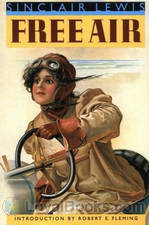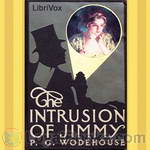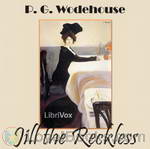|
Books Should Be Free Loyal Books Free Public Domain Audiobooks & eBook Downloads |
|
|
Books Should Be Free Loyal Books Free Public Domain Audiobooks & eBook Downloads |
|
Romance Novels |
|---|
|
Book type:
Sort by:
View by:
|
By: Zane Grey (1872-1939) | |
|---|---|
 Call Of The Canyon
Call Of The Canyon
Glenn Kilbourne returns from the war and travels to Arizona to regain his health. There he is nursed back to health by an Arizona girl, Flo Hutter Kilbourne's fiancée, Carley Burch arrives in Arizona but soon becomes disillusioned with life in the West and returns to New York. Carley soon learns that life in the Big City is not what she really wants. Should she return to Arizaona? Will Glen still love Her? Not only a great love story, Grey, as usual, describes the environment in all its glory. | |
 Rustlers of Pecos County
Rustlers of Pecos County
The town of Linrock, located in Pecos Couty is south Texas has fallen under the control of a gang of rustlers. Two Texas Lone Star Rangers are sent to Linrock to clean up the town .They soon fall in love with two girls who may be related to the leader of the gang of rustlers.There seems to be no good choice for these two dedicated lawmen. | |
 Rainbow Trail
Rainbow Trail
The Rainbow Trail is a sequel to The Riders of the Purple Sage. Both novels are notable for their protagonists' mild opposition to Mormon polygamy, but in The Rainbow Trail this theme is treated more explicitly. The plots of both books revolve around the victimization of women in the Mormon culture: events in Riders of the Purple Sage are centered on the struggle of a Mormon woman who sacrifices her wealth and social status to avoid becoming a junior wife of the head of a local church, while The Rainbow Trail contrasts the older Mormons with the rising generation of Mormon women who will not tolerate polygamy and Mormon men who do not seek it. | |
By: Jean Webster (1876-1916) | |
|---|---|
 Jerry
Jerry
Jerry is the humorous story of a young man's attempt to win his lady. Jerry is waiting for his friends at a hotel in Italy, and is bored and lonely. When he hears that a beautiful American lady, Constance Wilder, is staying nearby, he tries to visit her. After an awkward first meeting, he tries to catch her attention by pretending to be a peasant tour guide. She recognizes him for what he is, but pretends not to, and a lively charade is carried on as they tease and fall in love. A clean, sweet, funny historical fiction/romance. | |
By: Ayn Rand (1905-1982) | |
|---|---|
 Anthem
Anthem
The title 'Anthem' is derived as an anthem to sense of self and self-governing thoughts. Anthem is a story of Equality 7-2521 who is a young man living in some unspecified future time and place. In this future era freedom and individual rights have been eradicated. The starring character of the novel is an inquisitive street cleaner. He lives in a society where people have lost their knowledge of individualism, to the extreme that people do not know words like 'I' or 'mine'. All the people live and work for their livelihood in collective groups, along with the people with power, namely the 'Councils'... | |
By: Gene Stratton-Porter (1863-1924) | |
|---|---|
 Michael O'Halloran
Michael O'Halloran
The story of a plucky, optimistic newsboy, Michael O’Halloran, who has been orphaned from a young age and asks nothing of the world but to “Be Square!” This is a warm and joyous story of how Michael makes life sunnier for those around him, bringing joy to all who know him. | |
 The Harvester
The Harvester
The Harvester is one of Gene Stratton-Porter’s romantic novels which combine a love of nature, high moral ideals and a good plot. This is the story of a young man who lives in the country side with his dog and other animals and grows herbs to sell to medical drug supply houses. One evening, he has a vision of his Dream Girl and this is the story of his search for her and what happens when he finds her. | |
 A Daughter of the Land
A Daughter of the Land
Independent Kate Bates resents the fact that, as the youngest of a large family, she is expected to stay at home and help her parents while her brothers and sisters are free to pursue their desires. When she defies her family and leaves home, she finds that the path to independence is paved with hardships. | |
By: James Oliver Curwood (1878-1927) | |
|---|---|
 God's Country—And the Woman
God's Country—And the Woman
James Curwood wrote many adventures of the far north. By 1909 he had saved enough money to travel to the Canadian northwest, a trip that provided the inspiration for his wilderness adventure stories. The success of his novels afforded him the opportunity to return to the Yukon and Alaska for several months each year that allowed him to write more than thirty such books. The Canadian North is often referred to as “God’s Country” God’s Country is a tale of adventure, mystery and romance! | |
 Nomads of the North
Nomads of the North
An unlikely pair were Neewa, the black bear cub who had been orphaned at a young age, and Miki, part Mackenzie hound, part Airedale and Spitz who had become separated from his master in the frozen reaches of northern Canada. But the two befriended one another, and these nomads fended for themselves until they too became separated in an unfortunate way. While Neewa searched for his friend, Miki was taken by northern trappers who felt he could be trained to become a good fighting dog, a valuable asset in the north. What follows is Miki's attempts to flee from his captors and search for his master, and Neewa's search for his canine friend. | |
By: Mary Roberts Rinehart (1876-1958) | |
|---|---|
 The Amazing Interlude
The Amazing Interlude
It is the early days of The Great War. As the curtain rises, Sara Lee is sitting by the fire in her aunt and uncle’s home, knitting a baby afghan. Her beau’s name is Harvey. He has his eye on a little house that is just perfect for two and he will soon propose to Sara Lee. But in this play, the mise en scène is about to change. A fairyland transformation will take place and Sara Lee will step into a new and different story, where she is the princess in a forest of adventure. There is a prince, too, whose name is Henri... | |
 When a Man Marries
When a Man Marries
A divorced playboy hosts a dinner party complete with a stand in wife to placate his aunt who financially supports him. When his chef is hospitalized with smallpox symptoms, the fun begins. Throw in an ex-wife, a mystery, and a little romance and you have a comedy of side splitting proportions. - | |
By: Anna Katharine Green (1846-1935) | |
|---|---|
 The Amethyst Box
The Amethyst Box
On the evening before his marriage, Sinclair loses a precious curiosity from his collection: an amethyst box, containing a tiny flask of deadly poison. He suspects that this poison is in the possession of either his betrothed or her cousin, the girl his best friend Worthington loves. Turning to Worthington for help, they try to recover the box before the poison can be administered... | |
 Mayor's Wife
Mayor's Wife
Miss Saunders is out for an adventure. One, which is full of secrets, hints, and half-lies. One, which will require all of her wits. She is to be the companion to the Mayor's wife. The Lady is unhappy, and the reason for her grave unhappiness is more serious than you think. | |
By: Eleanor Hallowell Abbott (1872-1958) | |
|---|---|
 The White Linen Nurse
The White Linen Nurse
Throughout three years of school, Rae Malgregor had been perfectly pliant, perfectly compliant to all the demands placed on her. But now, on the eve of graduation, she couldn’t go on with the mask of artificiality and the air of perfection. She had been chasing this nursing job three whole years, but there was just no wag to it! The Superintendent was stunned. Her best student! The Senior Surgeon was all grey granite business and livid that his time was being taken up with a hysterical nurse! And yet, though he wouldn’t have admitted it to anyone, especially himself, his interest was piqued. | |
 Little Eve Edgarton
Little Eve Edgarton
Eve Edgarton is not who she seems she is. A short encounter with Mr. Barton show that first impressions are not always right or indicative of one’s seemingly obvious preference or one’s proclivity. | |
By: John Galsworthy (1867-1933) | |
|---|---|
 In Chancery (Vol. 2 of The Forsyte Saga)
In Chancery (Vol. 2 of The Forsyte Saga)
‘The Forsyte Saga’ is the story of a wealthy London family stretching from the eighteen-eighties until the nineteen-twenties. In Chancery is the second book in the saga. Five years have passed since Irene left Soames and the death of Bosinney. Old Jolyon meets Irene and is enchanted by her. At his death he leaves her a legacy sufficient for her to live an independent life in Paris. Soames, who is desperate for a son, attempts to effect a rapprochement but is rejected by her. Meanwhile Young Jolyon, now a widower who is Irene’s trustee, falls in love with her... | |
 To Let (Vol. 3 of The Forsyte Saga)
To Let (Vol. 3 of The Forsyte Saga)
‘The Forsyte Saga’ is the story of a wealthy London family stretching from the eighteen-eighties until the nineteen-twenties. To Let is the third and final book in the saga (although Galsworthy later published two further trilogies which extend the story). We are now in 1920, about twenty years since Irene married Young Jolyon and gave birth to John and since Soames married Annette, who gave him a daughter, Fleur. The two sides of the family have not met since those times and John and Fleur do not even know of each other’s existence... | |
 Beyond
Beyond
Gyp, the daughter of ex-Major Charles Claire Winton, at the age of 23 marries Fiorsen, a Swedish violin virtuoso. Her mother, the wife of another man, has been Winton's mistress; she had died when Gyp was born. A highly sensitive child, Gyp has grown up in isolated surroundings with a kind, but very British, father. As she gets older her father tries to introduce her into society. An attack of gout takes him to Wiesbaden for a cure and, as he never goes anywhere without her, she accompanies him... | |
By: Honoré de Balzac (1799-1850) | |
|---|---|
 Sarrasine
Sarrasine
Published by Honoré de Balzac in the tempestuous year of 1830, the tale follows the undulating pathways of Sarrasine the sculptor’s shocking journey to his coming of age. As one of the “fathers of realism” Balzac painted with his words a vivid portrait of life in the swirling salons of Europe at the end of the Bourbon monarchy, and we follow Sarrasine from France to Italy in search of both his métier and his muse.However it is also the story of La Zambinella, an Italian singer with whom Sarrasine falls madly and passionately in love. But that passion holds a secret which Sarrasine spies too late. | |
 Modeste Mignon
Modeste Mignon
Modeste Mignon, a young provincial woman of romantic temperament, imagines herself to be in love with the famous Parisian poet Melchior de Canalis. However, he is not moved by her attentions. He invites his secretary Ernest de la Brière to "deal with the matter". Ernest answers Modeste's letters in his name and acts as her lover, disguised as Canalis. The scene changes dramatically when Ernest discoveres that Modest is, in fact, a rich heiress. Would he be able to win her heart despite his lie? | |
By: Sinclair Lewis (1885-1951) | |
|---|---|
 Free Air
Free Air
This road trip novel is set in the early twentieth century and follows the experiences of an aristocratic New Englander and her father as they travel by automobile from Minneapolis to Seattle. She is wooed and won by a noble but simple commoner she meets along the way. Lewis is at his usual wryly humorous self, poking fun at the upper class and treating the common people only slightly better. | |
 The Innocents, A Story for Lovers
The Innocents, A Story for Lovers
“Mr. and Mrs. Seth Appleby were almost old. They called each other 'Father' and 'Mother.' But frequently they were guilty of holding hands, or of cuddling together in corners, and Father was a person of stubborn youthfulness.” It is only by subterfuge that Seth is able every year to obtain his two week's vacation from the shoe store, and they are off to the farm-house of Uncle Joe Tubbs on Cape Cod. But this year the vacation turns into a full blown scheme to open a country tea room somewhere on Cape Cod, and their life suddenly begins to change. . . . (Introduction by Don W. Jenkins) | |
By: Kate Douglas Wiggin | |
|---|---|
 The Old Peabody Pew: A Christmas Romance of a Country Church
The Old Peabody Pew: A Christmas Romance of a Country Church
A sweet, old fashioned Christmas romance set in an old New England meeting house. | |
By: Heinrich von Kleist (1777-1811) | |
|---|---|
 Michael Kohlhaas (English Translation)
Michael Kohlhaas (English Translation)
Michael Kohlhaas is an 1811 novella by Heinrich von Kleist, based on a 16th-century story of Hans Kohlhase. Both the theme (a fanatical quest for justice) and the style (existentialist detachment posing as a chronicle) are surprisingly modern. They resonated with other writers more than a century after it was written. Kafka devoted one of only two public appearances in his whole life to reading passages from Michael Kohlhaas. Kafka said that he "could not even think of" this work "without being moved to tears and enthusiasm." | |
By: Anthony Hope (1863-1933) | |
|---|---|
 Rupert of Hentzau
Rupert of Hentzau
This is the sequel to ‘The Prisoner of Zenda‘. Five years have passed. The King has become jealous of Rudolf Rassendyll and suspicious of the queen (Flavia)’s feelings towards him. Flavia decides that this must be the last year in which she sends to Rudolf the single red rose that betokens her love, and therefore she also sends via Fritz von Tarlenheim, her letter of good-bye. Count Rupert of Hentzau, banished from Ruritania after the incidents of the earlier book, is plotting his return. In furtherance of his scheme he obtains both letter and rose, and plots to place them before the King. Rudolf, Fritz and Sapt must prevent this at all costs… | |
By: P. G. Wodehouse (1881-1975) | |
|---|---|
 The Intrusion of Jimmy
The Intrusion of Jimmy
The action begins with playboy bachelor Jimmy Pitt in New York; having fallen in love on a transatlantic liner, he befriends a small-time burglar and breaks into a police captain's house as a result of a bet. The cast of characters head to England, and from there on it is a typically Wodehousian romantic farce, set at the stately Dreever Castle, overflowing with imposters, detectives, crooks, scheming lovers and conniving aunts. | |
 Jill the Reckless
Jill the Reckless
Jill had money, Jill was engaged to be married to Sir Derek Underhill. Suddenly Jill becomes penniless, and she is no longer engaged. With a smile, in which there is just a tinge of recklessness, she refuses to be beaten and turns to face the world. Instead she goes to New York and becomes a member of the chorus of "The Rose of America," and Mr. Wodehouse is enabled to lift the curtain of the musical comedy world. There is laughter and drama in _Jill the Reckless_, and the action never flags from the moment that Freddie Rooke confesses that he has had a hectic night, down to the point where Wally says briefly "Let 'em," which is page 313... | |
By: Sir Walter Scott (1771-1832) | |
|---|---|
 The Antiquary
The Antiquary
Illegitimacy, false identity, and bankruptcy are the major elements of Sir Walter Scott's 1816 novel, The Antiquary. Set in the period of the French Revolution, the novel's hero, Lovel, struggles to gain repute and the hand of his beloved despite his uncertain parentage. During these pursuits, he befriends the title's antiquary, Johnathan Oldbuck, who finds Lovel a captive audience to his scholarly studies and a tragic likeness to his own disappointments in love. Readers will discover whether Lovel's acts of bravery and courage ultimately earn him the birth and fortunes of a nobleman. | |
By: Florence Louisa Barclay (1862-1921) | |
|---|---|
 The Rosary
The Rosary
He is a wealthy gifted and handsome young pianist who worships beauty. She is a woman blessed with a divine voice, but a less than beautiful appearance. He proposes, but she cannot believe that his love will last. A tragic accident results in his losing his eyesight. She hears about the accident and takes up employment as his nurse without revealing her identity. This forgotten, 1910 best-seller still holds the power to charm and delight the modern-day reader. One of the most poignant love stories ever written, The Rosary by Florence Louisa Barclay takes its title from the name of a song that was a chart-buster in the early twentieth-century... | |
By: Rabindranath Tagore | |
|---|---|
 The Home and the World
The Home and the World
Rabindranath Tagore (1861–1941), also known by the sobriquet Gurudev, was a Bengali poet, Brahmo religionist, visual artist, playwright, novelist, and composer whose works reshaped Bengali literature and music in the late 19th and early 20th centuries. He became Asia’s first Nobel laureate when he won the 1913 Nobel Prize in Literature. The Home and the World is a 1916 novel, set in the estate of the rich Bengali noble Nikhil. He lives happily with his beautiful wife Bimala until the appearance of his friend and radical revolutionist, Sandip... | |
By: Philip Verrill Mighels (1869-1911) | |
|---|---|
 Thurley Ruxton
Thurley Ruxton
This is a rags to riches romance about an exceedingly beautiful, poor, young girl (Thurley Ruxton) who is mentored by one of New York’s elite hostesses. In order to draw them into her social circle, she allows all the famous and moneyed populous of Gothem to believe that Thurley is the princess Thurvinia hiding in New York to escape an arranged marriage. This causes all manner of high drama and romance with a suitable ending. | |